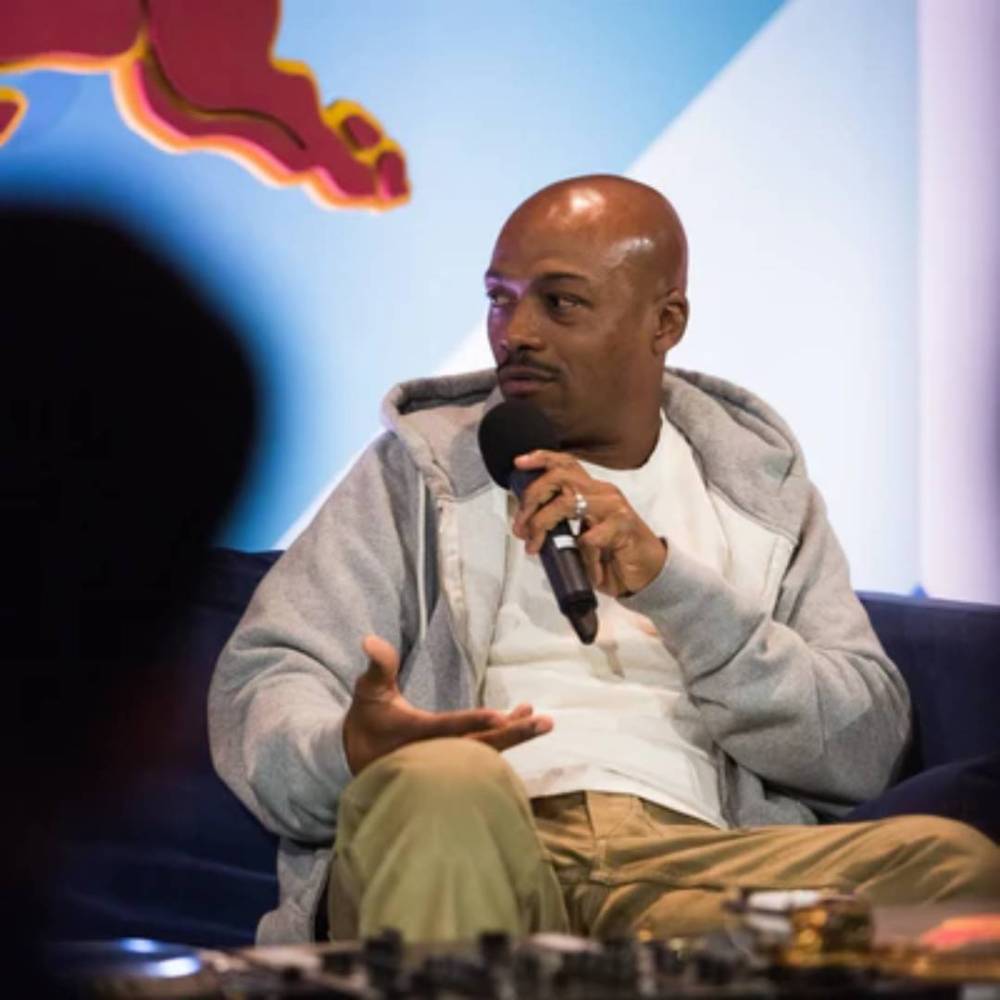Imaga via Ka/Website
Pranav Trewn finds peace in his vinyl record collection.
When a great artist passes away young, it’s frequently described as “unthinkable,” a characterization that has increasingly come to feel insincere. It reminds me of the famous Onion headline, “‘No Way To Prevent This,’ Says Only Nation Where This Regularly Happens.” Rap is the sole genre in which our greats die so early, so routinely. It’s not rare, which makes each tragedy as infuriating as they are devastating.
Time is the universal constraint, but some of us are working within tighter bounds. Kaseem Ryan never took his runway for granted. Ka, the fittingly no-nonsense name the lifelong Brownsville resident rapped by, had already survived beyond expectations. A ‘90s run at a music career failed to materialize, and he quietly left rap. But that creative death wouldn’t persist, with a fateful feature on GZA’s 2008 album Pro Tools leading to a fruitful connection with the kindred spirit and fellow to-be underground legend Roc Marciano. From there Ka began again, balancing his day job as a NYFD captain with a relentless recording spree. He forged his high-stakes street tales in high-art set pieces like Greek mythology, the game of chess, and contemporary religion. Up until his very last moment, he worked tirelessly to pave a lane of artfully austere New York hip-hop that others would follow. His pace was a warning as much as a gift; Ka almost missed his moment so he would never again waste a moment.
“I hope it’s borrowed time when my time come,” Ka prays on his final album, September’s The Thief Next To Jesus. It’s easy to read something of an omen from his eerily timed words, but Ka had never had death far from his purview. It was a frequent subject in his interviews, such as the screen grabs from this website that began floating around in the wake of the news, as well as throughout his discography. That hyper-awareness is simply the reality for a man who grew up in conditions we’d call survival more so than a childhood. “Happy I’m here to tell my story, just sad it’s fact/ They stole my youth, wish I had it back” he lamented on “Peace Peace Peace” from 2021’s A Martyr’s Reward. But in a life defined by making up for lost time, Ka made the most.
“Borrowed Time,” a self-produced, dutifully austere paean, is full of grim summations for Ka’s worldview: “I plan my death before I plan submission,” “With grace faced the firing squad, it’s all canon,” “Walk with my head high, talk for the ‘ville and Bed-Stuy.” His economical writing, never one to waste a word where it wasn’t needed, leads to commandment like pull-quotes such as these. But we tend to oversubscribe to Ka the image of a messiah, who’s words come fully formed and disembodied like the voice of Jehovah in Moses’ ear. Rather than prophetic scripture carved into stone, I hear Ka’s writing more as a hard-fought inner monologue. There was always humanity at the center of his songs, projecting a lived-in weariness and anxiety about the ills of the world, yet as mired in personal contradiction about his role in them as Kendrick without beating you over the head with his confliction.
Ka loved to work within concepts for his albums, but his commitment to a theme never descended into flat caricature, let alone the corniness that lesser rappers stumble into with when they oversubscribe to unwieldy ideas. As dry and academic as Honor Killed the Samurai and Descendants of Cain could have seemed on paper, the reality of his execution was always inviting. As a producer he traded in ominous, minimalist loops that belied their melodic weight, working as soft landings for his incisive writing that was always grounded in unvarnished vulnerability. He never lost the appeal of autobiography in his attempt at art, and I admired how even when he aspired to be larger than life his heart remained in plain view.
In the grim modern tradition of discovering death through an endless scroll, we are bombarded all at once with the anachronistic debris of one’s output as tribute. But the image of Ka that first came to my mind is one of the most recent, the simple black and white portrait of the artist at work for the “Borrowed Time” video. Typing on his laptop, placing a record on the turntable, flipping through the pages of a book – we get to peer into the humble interior of Ka’s craftsmanship. His stature as a firefighter and firestarter, legacy as a first responder and critically acclaimed trailblazer, all of it set aside for the most honest portrayal of a writer engaged in the ancient art of making meaning of their brief moment. With Ka we’ve lost yet another of our standard-bearers for this grand tradition.


